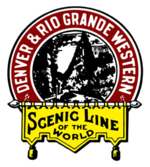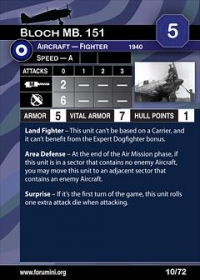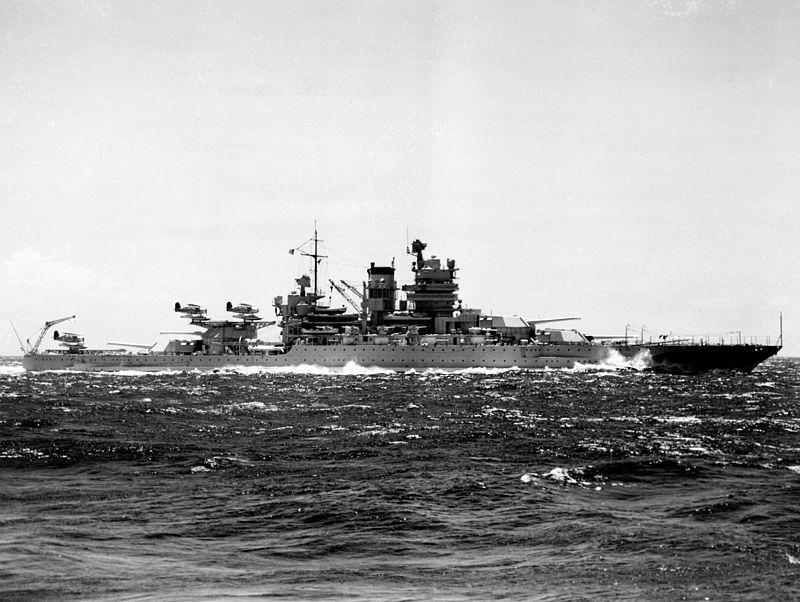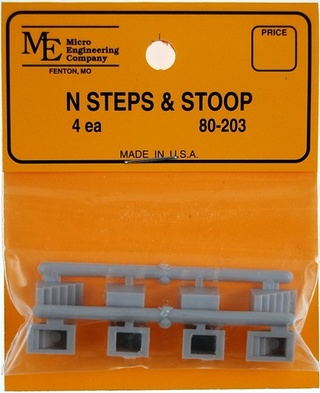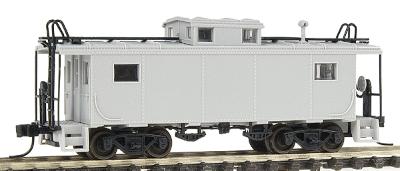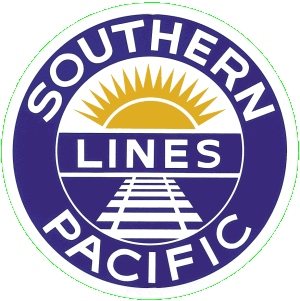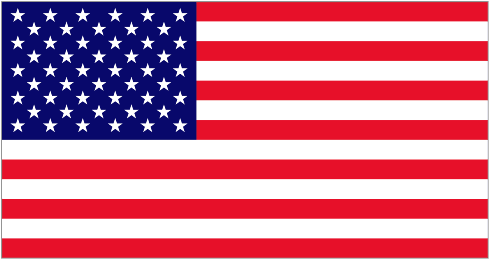Company History: The Denver & Rio Grande Western Railroad (reporting mark DRGW), often shortened to Rio Grande, D&RG or D&RGW, formerly the Denver & Rio Grande Railroad, was an American Class I railroad company. The railroad started as a 3 ft (914 mm) narrow-gauge line running south from Denver, Colorado in 1870. It served mainly as a transcontinental bridge line between Denver, and Salt Lake City, Utah. The Rio Grande was also a major origin of coal and mineral traffic.
The Rio Grande was the epitome of mountain railroading, with a motto of Through the Rockies, not around them and later Main line through the Rockies, both referring to the Rocky Mountains. The D&RGW operated the highest mainline rail line in the United States, over the 10,240 feet (3,120 m) Tennessee Pass in Colorado, and the famed routes through the Moffat Tunnel and the Royal Gorge. At its height in the mid-1880s, the D&RG had the largest narrow-gauge railroad network in North America with 2,783 miles (4,479 km) of track interconnecting the states of Colorado, New Mexico, and Utah.[1] Known for its independence, the D&RGW operated the last private intercity passenger train in the United States until Brightline began service in Florida in January 2018, the Rio Grande Zephyr, which was discontinued in 1983.
In 1988, the Rio Grande's parent corporation, Rio Grande Industries, purchased Southern Pacific Transportation Company, and as the result of a merger, the larger Southern Pacific Railroad name was chosen for identity. The Rio Grande operated as a separate division of the Southern Pacific, until that company was acquired by the Union Pacific Railroad. Today, most former D&RGW main lines are owned and operated by the Union Pacific while several branch lines are now operated as heritage railways by various companies.
From Wikipedia
The Rio Grande was the epitome of mountain railroading, with a motto of Through the Rockies, not around them and later Main line through the Rockies, both referring to the Rocky Mountains. The D&RGW operated the highest mainline rail line in the United States, over the 10,240 feet (3,120 m) Tennessee Pass in Colorado, and the famed routes through the Moffat Tunnel and the Royal Gorge. At its height in the mid-1880s, the D&RG had the largest narrow-gauge railroad network in North America with 2,783 miles (4,479 km) of track interconnecting the states of Colorado, New Mexico, and Utah.[1] Known for its independence, the D&RGW operated the last private intercity passenger train in the United States until Brightline began service in Florida in January 2018, the Rio Grande Zephyr, which was discontinued in 1983.
In 1988, the Rio Grande's parent corporation, Rio Grande Industries, purchased Southern Pacific Transportation Company, and as the result of a merger, the larger Southern Pacific Railroad name was chosen for identity. The Rio Grande operated as a separate division of the Southern Pacific, until that company was acquired by the Union Pacific Railroad. Today, most former D&RGW main lines are owned and operated by the Union Pacific while several branch lines are now operated as heritage railways by various companies.
From Wikipedia
Successor/Parent History: The Southern Pacific Transportation Company (reporting mark SP), earlier Southern Pacific Railroad and Southern Pacific Company, and usually called the Southern Pacific or (from the railroad's initials) Espee, was an American Class I railroad. It was absorbed in 1988 by the company that controlled the Denver and Rio Grande Western Railroad and eight years later became part of the Union Pacific Railroad.
The railroad was founded as a land holding company in 1865, later acquiring the Central Pacific Railroad by lease. By 1900 the Southern Pacific Company was a major railroad system incorporating many smaller companies, such as the Texas and New Orleans Railroad and Morgan's Louisiana and Texas Railroad. It extended from New Orleans through Texas to El Paso, across New Mexico and through Tucson, to Los Angeles, through most of California, including San Francisco and Sacramento. Central Pacific lines extended east across Nevada to Ogden, Utah, and reached north through Oregon to Portland. Other subsidiaries eventually included the St. Louis Southwestern Railway (Cotton Belt), the Northwestern Pacific Railroad at 328 miles (528 km), the 1,331 miles (2,142 km) Southern Pacific Railroad of Mexico, and a variety of 3 ft (914 mm) narrow gauge routes.
In 1929 SP/T&NO operated 13848 route-miles not including Cotton Belt, whose purchase of the Golden State Route circa 1980 nearly doubled its size to 3,085 miles (4,965 km), bringing total SP/SSW mileage to around 13,508 miles (21,739 km).
By the 1980s route mileage had dropped to 10,423 miles (16,774 km), mainly due to the pruning of branch lines. In 1988 the Southern Pacific was taken over by D&RGW parent Rio Grande Industries. The combined railroad kept the Southern Pacific name due to its brand recognition in the railroad industry and with customers of both constituent railroads. Along with the addition of the SPCSL Corporation route from Chicago to St. Louis, the total length of the D&RGW/SP/SSW system was 15,959 miles (25,684 km).
By 1996 years of financial problems had dropped SP's mileage to 13,715 miles (22,072 km), and it was taken over by the Union Pacific Railroad.
Read more on Wikipedia.
The railroad was founded as a land holding company in 1865, later acquiring the Central Pacific Railroad by lease. By 1900 the Southern Pacific Company was a major railroad system incorporating many smaller companies, such as the Texas and New Orleans Railroad and Morgan's Louisiana and Texas Railroad. It extended from New Orleans through Texas to El Paso, across New Mexico and through Tucson, to Los Angeles, through most of California, including San Francisco and Sacramento. Central Pacific lines extended east across Nevada to Ogden, Utah, and reached north through Oregon to Portland. Other subsidiaries eventually included the St. Louis Southwestern Railway (Cotton Belt), the Northwestern Pacific Railroad at 328 miles (528 km), the 1,331 miles (2,142 km) Southern Pacific Railroad of Mexico, and a variety of 3 ft (914 mm) narrow gauge routes.
In 1929 SP/T&NO operated 13848 route-miles not including Cotton Belt, whose purchase of the Golden State Route circa 1980 nearly doubled its size to 3,085 miles (4,965 km), bringing total SP/SSW mileage to around 13,508 miles (21,739 km).
By the 1980s route mileage had dropped to 10,423 miles (16,774 km), mainly due to the pruning of branch lines. In 1988 the Southern Pacific was taken over by D&RGW parent Rio Grande Industries. The combined railroad kept the Southern Pacific name due to its brand recognition in the railroad industry and with customers of both constituent railroads. Along with the addition of the SPCSL Corporation route from Chicago to St. Louis, the total length of the D&RGW/SP/SSW system was 15,959 miles (25,684 km).
By 1996 years of financial problems had dropped SP's mileage to 13,715 miles (22,072 km), and it was taken over by the Union Pacific Railroad.
Read more on Wikipedia.
Brief History: The U.S. is a country of 50 states covering a vast swath of North America, with Alaska in the northwest and Hawaii extending the nation’s presence into the Pacific Ocean. Major Atlantic Coast cities are New York, a global finance and culture center, and capital Washington, DC. Midwestern metropolis Chicago is known for influential architecture and on the west coast, Los Angeles' Hollywood is famed for filmmaking.
Item created by: Jenna on 2018-07-13 19:40:50. Last edited by Alain LM on 2020-02-17 10:54:41
If you see errors or missing data in this entry, please feel free to log in and edit it. Anyone with a Gmail account can log in instantly.
If you see errors or missing data in this entry, please feel free to log in and edit it. Anyone with a Gmail account can log in instantly.


